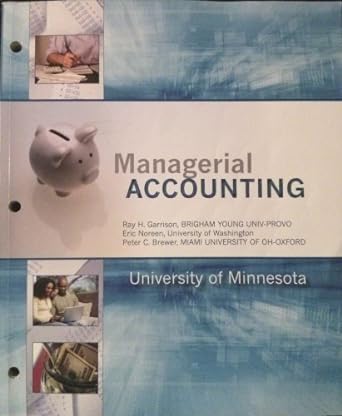Question
AF308: Taxation Law AF308_202101 Week 2 Discussion Qu... Search Search forums Week 2 Discussion Question TOGGLE INTRO This question concerns Carden's case. Up until 1929
AF308: Taxation Law
AF308_202101
Week 2 Discussion Qu...
Search
Search forums
Week 2 Discussion Question
TOGGLE INTRO
This question concerns Carden's case. Up until 1929 Dr Carden calculated his business profit on an earnings basis. He then changed to a cash basis for the tax years 1929-1935. Why did he make the change? We are not told. But let me speculate. In Australia the tax year is July 1 to June 30. Thus Dr C first makes the change in reporting and calculating his income at the conclusion of the 1929-30 tax year ie July 1930. What happened in October 1929? Answer: the Wall Street Crash and start of the great depression. The great depression was pretty much a world-wide phenomenon. Certainly it reached Australia and in Australia was quite severe. With the depression came mass unemployment. In the depression years I would guess that many of Dr Cs patients (likely patients over many years) could not make immediate payment for their consultation with the doctor. Dr C was compelled to extend credit to patients, likely many patients, with little certainty as to when they would pay (or even if they could pay). In this situation continuing his previous use of accrual accounting was very unattractive. So he makes the pivot to use a cash basis. Was this the reason for the pivot? We will never know. But I think this is a likely explanation. We dont tax businesses. We tax the owner/s of a business. The owner (sole trader or company) or owners (partnership) carry on business. Income of the owner (the taxpayer) is the profit arising from the business activity. Profit as a general proposition is income less expenses. In Cardens case Dixon J. states a number of times that in calculating profit we generally look to accounting practice. Accounting practice, or in modern times, accounting standards, provide that income and expenses of a business are recognised on an accruals basis (earnings basis). Dr C is carrying on a business (medical services). Prima facie profit of his business is to be calculated on an accruals basis. If Dr C wants to calculate profit on a cash basis then the onus lies on him to establish why the standard accounting practice does not apply to his particular business. Dr C is a sole trader. Of itself this fact is no reason for not applying the standard rule. One and the same medical services business could be owned and carried on by a sole trader, or by a company, or by a partnership. Business profit is calculated on an accruals basis and prima facie the form of ownership (sole trader/co/partnership) is irrelevant. For Dr C to get non-standard treatment (cash basis) it doesnt suffice simply to say, But Im a sole trader. In contrast to business income, income tax law classically recognises employment income on a cash basis. If salary is due and payable but you have not yet been paid then you dont yet have income. If salary is paid in advance then currently you do have income even though you have not yet done the work. [Why is income from employment recognised on a cash basis? I think it is because life for most workers is conducted on a cash basis. Workers live in a cash world. Taxi rides and cinema tickets are sold on cash terms. So too is food at the market or supermarket. So too are big ticket items like cars and houses. (I know we often get financing to buy a car or a house. But the reason we get financing is because the car or house is being sold on a cash basis. The financier provides us with cash so we can enter the cash market for houses.)] In everyday English we have the expression self-employed. This is a curious expression. How can you employ yourself? How can you be both employer and employee? Makes no (legal) sense. And yet we have the expression. So when do we use it? If a sole trader owns a supermarket business employing 30 people with a large amount of trading stock, does this individual say, I am self-employed? I dont think so. This individual says, I own a business. So when is the expression self-employed appropriate? Here in Suva the shoe shine boys I suggest are self-employed. Other examples: a consultant, a barrister. Who do you work for? I work for myself. Im a consultant. Consultant with a consulting practice, doctor with a medical practice, barrister with a legal practice - all ply their trade; all have services for hire. Such actors are formally sole traders but such actors might perhaps also describe themselves with that curious expression self-employed. Perhaps Dr C could argue: employees derive income on a cash basis. I am self-employed. Hence I too derive income on a cash basis. Heres our question. Is this the reason that Dixon J. rules in favour of the taxpayer, or is there more to it, or indeed is the reason something quite different?
Step by Step Solution
There are 3 Steps involved in it
Step: 1

Get Instant Access to Expert-Tailored Solutions
See step-by-step solutions with expert insights and AI powered tools for academic success
Step: 2

Step: 3

Ace Your Homework with AI
Get the answers you need in no time with our AI-driven, step-by-step assistance
Get Started


